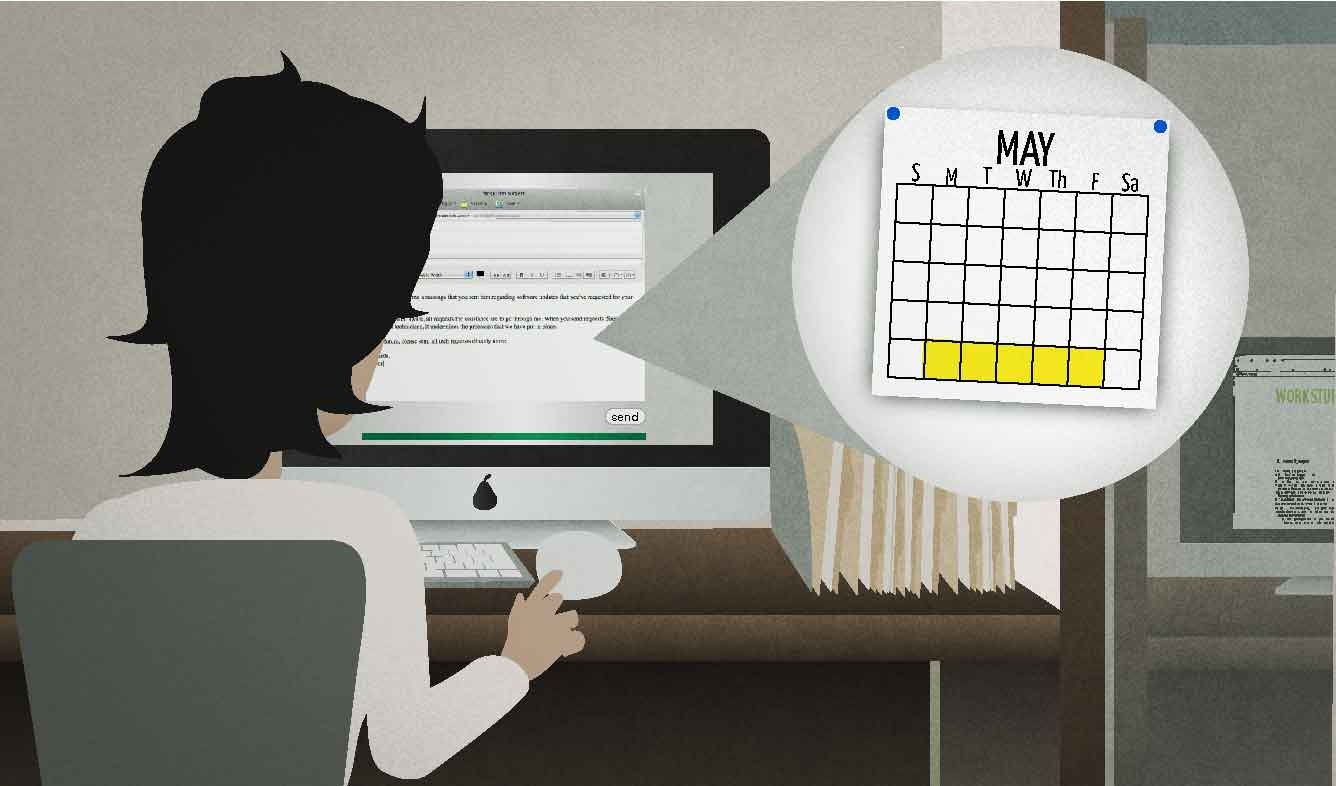“Let me know if that works.”
You've chosen a week when you'd like to take a vacation. You're sending an email to your boss to request those days off. Near the end of the message, you ask for permission in a confident way.
Let me know if that works.
Want Video and Sound? Follow us on YouTube

let me know
The phrase "Let me know ___" means "Tell me ___". It's extremely common in everyday English, because "Tell me ___" can sound too demanding or angry.
Here are some examples:
Let me know when you're free and we'll set up a meeting.
Let me know when you hear from them.
If you encounter any problems, please let me know immediately.
You can see "Let me know..." a lot in business emails.
(something) works
When something "works", it means that the people you're speaking or writing to think it's OK.
For example:
A: I'm free this Wednesday after five. Does that work?
B: Yeah, that works for me.
This expression is very common in business communication. It seems more confident than asking if something is "OK":
Let me know if that's OK with you.
This is something you might write to an executive in your company or to a customer who you've only spoken with a few times before.
Let me know if that works for your team.
This is something that you'd write to a coworker or client who's somewhat equal to you in status, or who you know well.
